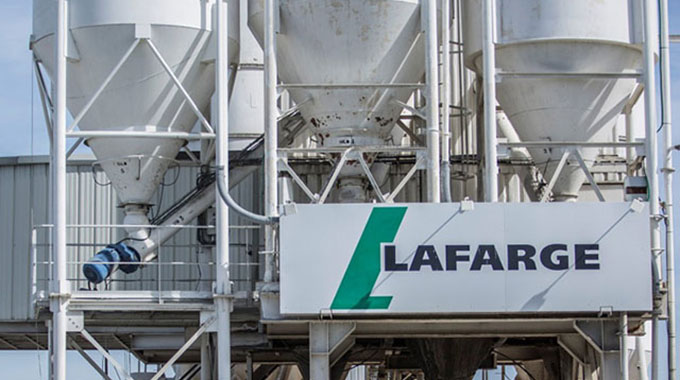Mine loses land dispute

Fidelis Munyoro Chief Court Reporter
PINKSTONE Mining (Pvt) Ltd’s request to have an interim interdict granted against LafargeHolcim Cement Zimbabwe from mining lime on a piece of land in Pfura Rural District in Mashonaland Central Province has failed after the High Court turned down the injunction confirmation.
The interim relief in March 2018 was granted following an application by Pinkstone Mining, African Mills and Minerals and Timothy Matangi, a director in both companies, claiming ownership to the piece of land.
An interim interdict is a restoration of the specific scenario until a final decision relating to the rights of the parties can be made by the court.
The granting of an interim interdict does not affect the court’s decision when making its final decision.
Zimbabwe Stock Exchange-listed Lafarge, a subsidiary of French cement giant LafargeHolcim Group, and Zimbabwe’s second largest cement producer after PPC — was granted the interdict following an urgent chamber application. This was after an investigation conducted by the applicants who learnt from a news article that Lafarge’s intended to mine lime on the land in Pfura.
However, when Pinkstone brought the application for confirmation of the interdict, Justice Nevil Munyaniso Wamambo refused to approve the order for lack of merit. He ruled that there was no justification for the setting aside of Lafarge mining claims, as the map showed no encroachment.
“The non-confirmation of the interim order is mostly based on the facts that the coordinates on the map and on the ground somewhat missed a total of 27,17 hectares through no fault of either applicant (Pinkst one) or first respondent (Mutangi),” said Justice Wamambo discharging the provisional order, which was issued against the respondents on March 17, 2008.
Mutangi had argued that Lafarge pegged on ground that was not open to prospecting and pegging.
During the hearing of the interim order in 2018 Justice Zhou allowed Pinkstone Mining’s application for the interim order saying it was the rightful holder of the lime mine claims, which it has held since 1996.
According to Matangi, the investigation showed that air pegging using the global positioning system (GPS) was used instead of conducting ground pegging. Had ground pegging been done as is required by law, Lafarge Cement would have noticed Pinkstone Mining’s operations on the ground.
Matangi said he felt betrayed especially after his company once engaged Lafarge for a partnership in 2008, which had an “option to purchase agreement”.
This would see Lafarge purchasing Matangi’s mining claims. However, the deal collapsed as the agreement had been set to expire by January 31 2009.









Comments